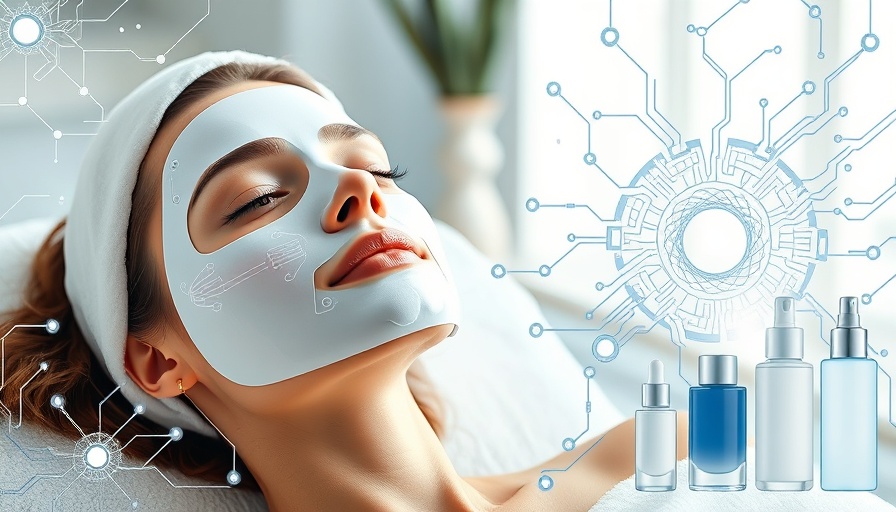
Transforming Beauty Marketing with AI: A Dual Role
Beauty brands and spas are at a turning point as they integrate AI marketing tools into their strategies. While AI can facilitate myriad tasks, it simultaneously poses challenges. It's crucial for business owners to remember that while AI can generate content like product descriptions and blog posts, it cannot replicate the strategic thinking that defines effective marketing. When utilizing AI, you’re not just looking for efficiency; you're aiming to maintain authenticity in your brand voice, something that simply copying and rephrasing won't achieve.
The Importance of Strategic Integration
A common misconception is that AI serves solely as a content factory. However, smart marketers leverage it as an assistant rather than a replacement. Thoughtful AI integration means using it to handle routine tasks such as data analysis or generating ideas for blog posts while complementing it with creative input from marketing professionals who understand the nuances of their audience. This crucial balance ensures the output remains unique and personable, vital for brands in the competitive beauty sector.
Google's Revisions: A Wake-up Call for Quality Content
Recent Google updates focusing on E-E-A-T (Experience, Expertise, Authoritativeness, and Trustworthiness) highlight the importance of delivering quality content. For beauty brands, this means ensuring that all content produced is not only well-researched and original but also reflects the brand's knowledge and trustworthiness. Relying solely on AI for bulk content generation could risk penalties from Google for low-quality submissions, which can harm a brand's visibility and reputation.
AI Detectors: Reliability and Limitations
In an age where AI-generated content is becoming commonplace, it's essential to be cautious about AI detection tools. Many of these tools claim to distinguish between human and AI-created content, yet they have been found to be unreliable. Instead of depending on these tools, brands should focus on maintaining the integrity and creativity of the content they produce. Authentic, human touchpoints in marketing resonate deeply with audiences, especially in personal fields like beauty and wellness.
The Future: An Ensemble Approach to Marketing
As we move forward, the beauty industry stands to benefit from an approach that combines AI tools with human creativity. Marketers who can marry these two elements will pioneer a new era of engagement, utilizing data-driven insights while also telling compelling, personalized stories that attract and retain customers. It's not about replacing the human element; it's about enhancing it with the power of technology.
Conclusion: Embracing AI with Caution
The rise of AI marketing for beauty brands and spas presents both opportunities and challenges. By viewing AI as a complement to their strategic marketing efforts, brands can maintain their unique identity and ensure their message resonates authentically with their audience. Marketers must take careful steps to utilize AI cautiously—balancing efficiency with personal touch. To thrive in the evolving landscape of beauty and wellness, ensure that your marketing strategies reflect both technological savvy and the warmth of personal engagement.
 Add Row
Add Row  Add
Add 



Write A Comment